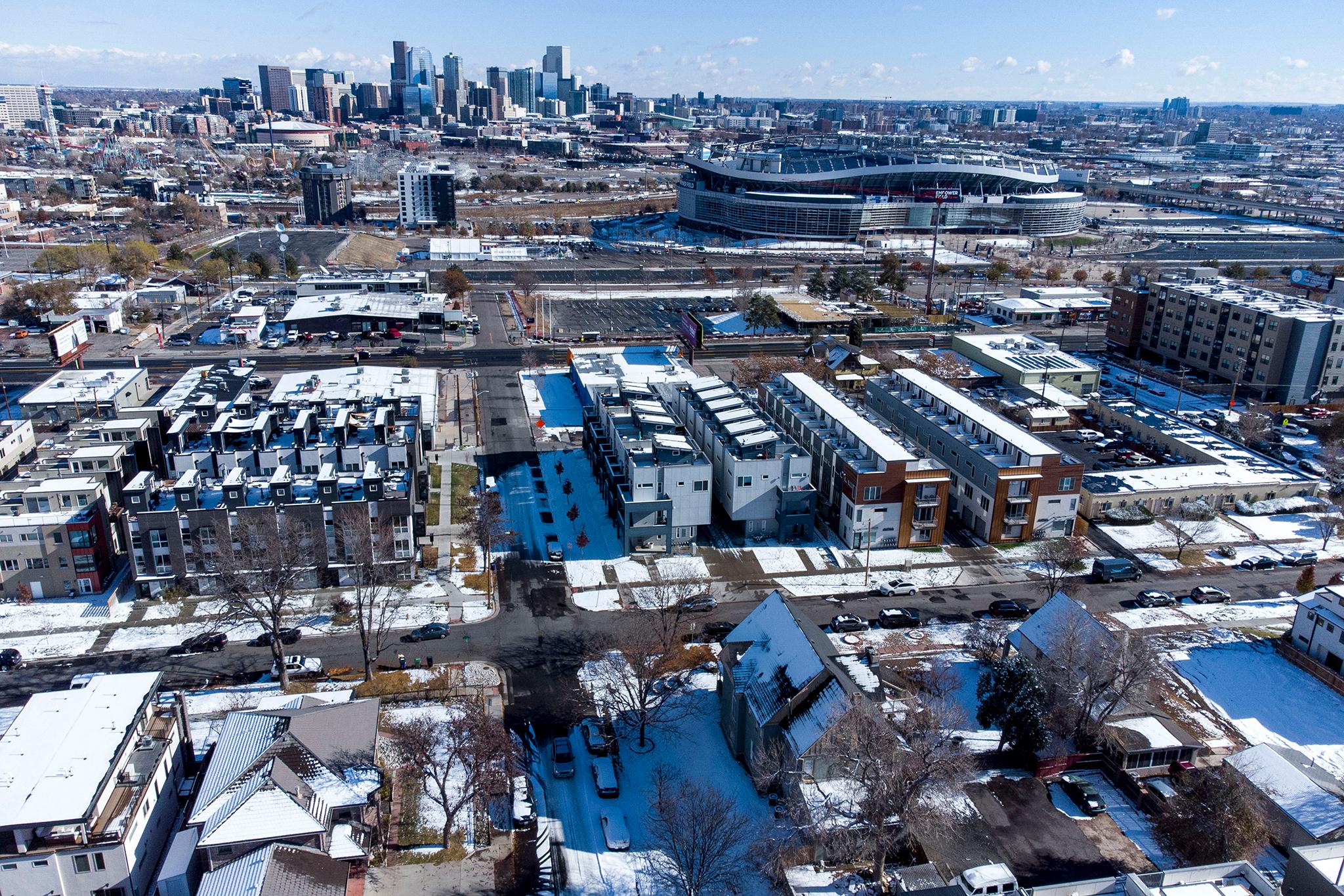No surprise: Denver's continuing to suffer through a housing crisis into 2023 -- both for people struggling to stay in the city and those who have no shelter at all.
"Housing affordability is one of the top challenges that our community faces, and it has been for some time," said Derek Woodbury, a spokesperson with the Denver Department of Housing Stability.
Many households are spending more than 30% of their income on housing, which makes them "cost burdened," he said. "'It's making a strain on families and on individuals throughout our community."
One of the reasons housing costs are so high is that there just isn't enough supply -- particularly for working and middle-class people.
Both the City of Denver and nonprofit and private developers have been busy trying to meet the significant demand for housing most Denverites can afford.
The city has been partnering with developers and funding their efforts. Community Planning and Development has been struggling to speed up permitting and inspection times, and developers have been trying to build.
The rub: Finishing new projects takes a long time. For families who need housing now, those efforts feel theoretical. Yet many projects have been completed.
There are the Capitol Square Apartments, 103 income-restricted units a block from the Statehouse. The Fax Partnership purchased the Westerner and Sand & Sage motels with affordable housing in mind. Empty lots around town and even the Park Hill Golf Course are being eyed for some affordable housing projects, along with even more market-rate housing. Some neighborhoods are being rezoned to make way for denser housing, including accessory dwelling units. And even housing co-cops have had wins this year.
As the 2023 election approaches and candidates race to be mayor, solving the housing crisis is front and center in most campaigns. Debates over what sort of housing gets built, where it can be built, and who it's for will be major issues those in the race and lawmakers must address.
There are some troubling developments when it comes to managing the housing crisis.
The State of Colorado, Denver and other municipalities are winding down their federally funded COVID-emergency rental assistance program. While there is still some funding allocated for rent assistance, the amount will drop.
Eviction rates in the city are rising, and while the housing market continues to cool down, rents have stayed high -- a testament to the demand for housing and the shortage of supply.
Developers have told Denverite that lags in city permitting and inspecting for new projects continue to slow down the creation of much-needed housing. Building in the city is increasingly cumbersome, and they are taking their projects elsewhere.
Exclusionary zoning, which prevents the creation of multi-unit housing in the majority of the city, limits where and how much new housing can be built.
Denver is behind nearly 20,000 rental units that are affordable for people earning 50% of the area median income or less.
That's according to Derek Woodbury, a spokesperson for Denver's Department of Housing Stability, which is also known as HOST.
For perspective, 50% AMI would be $41,050 in earnings for a single-person household or $58,600 for a family of four.
In the city, minimum wage is currently $15.87 and will rise to $17.29 next year. In 2023, a person working for that rate with zero holiday or vacation days would make $35,963 and easily qualify for such housing.
So how is the City of Denver contributing to building this type of housing stock?
Throughout the past year, new partially city-funded affordable housing projects have been built -- many around transit centers, allowing people without cars to have access to much of the city.
Between last Thanksgiving and October 27 2022, 933 new income-restricted units opened at 10 developments across Denver, Woodbury noted.
"That's a lot that we're happy about and that we're celebrating," he said.
But he acknowledged there's plenty more to be done.
The city's recently passed Expanding Housing Affordability program requires developers to build more income-restricted housing or pay into the city's affordable housing fund. A recently passed state law will also dedicate more money to income-restricted housing projects.
Next year, the agency plans to create or preserve 1,784 income-restricted homes in partnership with developers, Woodbury said. "We're looking to do many more in the years ahead."












